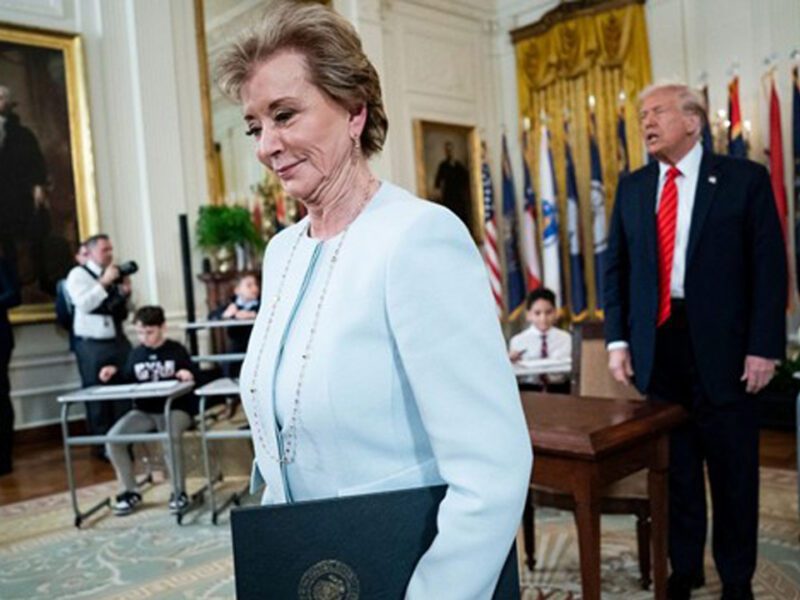Florida lawmakers tee-up early tax cut ideas as budget gap looms
Politico | by Matt Dixon | February 25, 2021
TALLAHASSEE, Fla. — As lawmakers work to bridge a nearly $3 billion pandemic-driven budget gap, one consistent feature of the GOP-dominated Legislature is likely to remain: tax cuts.
Though the size and shape of this year’s potential tax cut package is not yet clear, there are early talks in the halls of the Florida Capitol of once again reducing corporate and property taxes, a regular feature of recent legislative sessions, and economists are quietly starting to put revenue numbers on tax cut proposals.
This comes against the backdrop of Florida’s economy being hit hard by the coronavirus pandemic. Though Gov. Ron DeSantis did not institute the type of economic lockdowns experienced in other states, Florida’s tourism-driven economy has been whacked and lawmakers enter the 2021 legislative session facing a $2.7 billion budget gap.
One potential source of revenue boost is a long-sought proposal to require out-of-state online retailers to collect sales taxes at the point of purchase, which is not currently required in Florida. Lawmakers have again filed bills to require the online tax collection, which could bring in an estimated $1.3 billion — including $900 million into state coffers.
During a meeting last week of the Senate Finance and Tax Committee, state Sen. Joe Gruters, a Sarasota Republican sponsoring that chamber’s bill said that they plan on tying tax cut proposals to his legislation in the Senate Appropriations Committee, which is its last stop before a floor vote.
“We are going to add some tax relief into this bill,” Gruters, who is also chair of the Republican Party of Florida, told the committee. “We might not get all the way to being revenue neutral. But with $1.3 billion potential advantage, there will be a lot to go around and I know the Senate will have the right ideas on where to use that money.”
Sen. Ray Rodrigues, an Estero Republican who sits on the committee, suggested the continued reduction of the taxes state businesses pay on leases should be considered. Florida is the only state in the country that charges a so-called “business rent tax,” so each year the state’s powerful business lobby pushes for a reduction.
No specific cut is yet in play this session, but last week state economists had on their agenda a potential reduction from 5.5 to 4.5 percent, which would be a huge decrease. In most years, lawmakers consider a reduction that’s a fraction of one percent. The panel of economists did not put a revenue number on the proposed language, but outside industry groups have estimated a one percent decrease would be worth more than $300 million.
A reduction of the tax is supported by Republican leadership, but they must balance the size of the cutback amid a global pandemic. House Speaker Chris Sprowls (R-Palm Harbor) told POLITICO last week that it “remains to be seen” how much they will be able to reduce, while Senate President Wilton Simpson (R-Trilby) said his chamber is “making no commitments until we review the entire budget.”
The panel of economists, known collectively as the Revenue Estimating Impact Conference, did consider a handful of other potential tax cuts, including giving a break to companies that rent heavy equipment like bulldozers. Under the language considered, the equipment stock held by those companies would be added to the state definition of “inventory,” which comes with certain tax breaks.
The conference estimated that including heavy equipment rental companies in the inventory definition would provide $23.7 million in recurring revenue once fully implemented, records show.
Senate Budget chief Kelli Stargel (R-Lakeland) said that while the revenue estimating conference considered proposed tax cuts, they could end up with a legislatively-crafted tax package. But that’s not a given with this year’s revenue crunch.
“The governor had the usual tax cuts [in his proposed budget],” she told POLITICO in a Tuesday interview. “In addition, many of our businesses are suffering. So, it [tax cuts] is possible. Having the impact evaluation from [Economic and Demographic Research] is helpful information, but not necessarily an indicator of our intentions.”
Last month, DeSantis released a proposed $96 billion budget that featured a tax cut proposal which included $65 million in tax cuts through sales tax holidays on back-to-school and hurricane preparedness purchases. Both those tax cut proposals are passed annually by lawmakers, so the governor’s tax cut proposal was considered a scaled back version from what is traditionally considered.
DeSantis’ spending plan, like any governor’s budget proposal, is simply his administration’s recommendations. Lawmakers are the ones responsible for crafting the state’s 2020-21 budget.
Photo: The Florida Capitol in Tallahassee, Fla., is pictured. | Phil Sears/AP Photo





